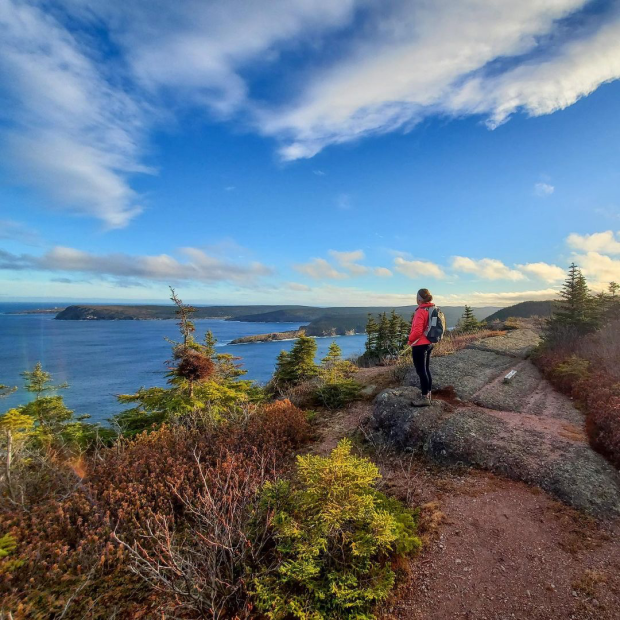New to hiking? Before lacing up, read these tips to conquering N.L.'s trails and mountains


The East Coast Trail Association says more hikers are hitting the trails this year, many of them for the very first time. But as foot traffic increases, the organization says, so does the need for proper preparation.
To help those setting out on their maiden trek, Julia Penney, the association's business manager, and Jennifer Hoffman, visitor safety co-ordinator for Parks Canada in western Newfoundland, offer some tips to consider before taking to the trails.
Tip No. 1: Set realistic timelines
Before hitting the trail, setting a realistic schedule is paramount, said Penney.
"That's knowing your route, knowing where you're going to go, how long you're expecting to be out. It's also important that you let somebody else know where you're going when you're expected to be back."
Hoffman agrees that time management is key. Many hikers on Gros Morne Mountain don't take into account how long the trek may take. "If you leave too late in the day, you're going to be coming back in the dark," she said.
ECTA trails are linear, Penney noted, meaning they start in one community and end in another.
"Some first-time hikers are learning the difference between a linear and a loop," she said. "So if you're not going to hike it there and back then you'll need either two cars or somebody to pick you up on either end."

Tip No. 2: Be prepared
"It's also really important to make sure that you have the right footwear on," Penney said. "So you don't want to be wearing sandals. And we don't even really recommend running shoes. You want to wear something with ankle support so that when you're out on the wilderness trail, your feet are protected and you're keeping yourself safe."
Hoffman says incidents, including injuries, are fairly common on Gros Morne.
"Sometimes it's just an injury that nobody can really avoid because of the terrain or whatever," she said. "But sometimes it's more related to the lack of preparation."
Being prepared, Hoffman says, means knowing your level of fitness — and that of the group you are hiking with — as well as any health issues like bad knees.
"If you have people of varying abilities, you know, the speedy, fit people go ahead and the slower ones are left behind," she said. "You should be prepared to turn around if somebody in your group is struggling or they're just not enjoying the hike, because you want to keep your group together."
Hikers should also consider conserving their phone for emergencies, said Hoffman. That means placing it in airplane mode, keeping photos to a minimum and bringing along a flashlight.
Tip No 3: Be respectful of the environment
Penney said more foot traffic on trails brings more garbage, noise and debris — an antidote to the experience most hikers seek on the trails' natural landscapes.
"We want to make sure that the wildlife [is] undisrupted," Penney said. "So whether that's your orange peels, your snack wrapper, moving rocks, you want to make sure that you leave it better than you found it and really leave no trace on the trail."

Tip #4: Be mindful of residents
"Another tip is to make sure that you are respecting the communities — with your parking, with your noise, with the amount of garbage that you're taking out with you," Penney said. Some residents of some communities along the trail network have complained about hikers parking where they shouldn't.
"The trail runs 336 kilometres through over 20 communities, so there's a lot of people that hikers will encounter."
Putting some 'fun' in 'fundraiser'
The annual Trailraiser event typically brings together hikers and supporters of the ECTA for a one-day hike. For last year's edition, the ECTA partnered with the Canadian Mental Health Association, reaching its goal of $100,000, which was split between the two organizations.
The event, which is sponsored in part by the Outfitters, will be held virtually for the second year in a row in 2021, with the one-day hike swapped out for a series of hiking challenges running through Labour Day.
A registered charity with three full-time employees and 25 seasonal employees, the ECTA relies on the fundraiser for its annual operating costs.
"There's lots of maintenance, development and enhancement that we need to do," Penney said, "And these funds help us to be able to do that."
The 2021 edition of Trailraiser has raised over $35,000 so far, she said.

 Yahoo Finance
Yahoo Finance 